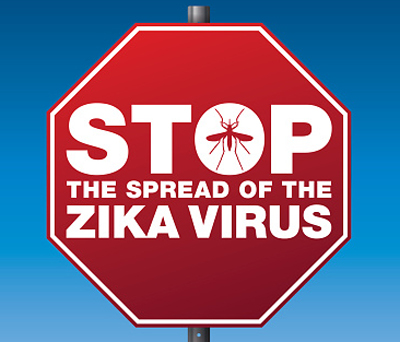
Until recently, very few people had ever heard of the Zika virus — unfortunately, this is no longer the case. Zika is a virus transmitted by the Aedes mosquito and likely can have life-long consequences for an unborn child.
What is Zika?
Washington University infectious disease specialist Michael Diamond, MD, PhD, associate director of the Center for Human Immunology and Immunotherapy programs, explains, “Zika virus is spread to people primarily through mosquito bites. The most common symptoms of Zika virus disease are fever, rash, joint pain, and conjunctivitis (red eyes). The illness is usually mild with symptoms lasting from several days to a week. Approximately 1 out of 5 people with Zika infection show no outward signs of infection.
The infection of a pregnant woman is believed to be associated with a birth defect called microcephaly (abnormal smallness of the head, a congenital condition associated with incomplete brain development). However, we are still not absolutely certain that Zika even causes the microcephaly – the data, however, is highly suggestive, but not yet proven.”
As of January 15, 2016, local transmission had been identified by the Centers for Disease Control and Prevention (CDC) in at least 14 countries or territories in the Americas, including Puerto Rico. See current travel advisories for countries and territories in the Americas with Zika virus transmission.
Local transmission of Zika virus has not yet been documented in the continental United States. Dr. Diamond says, “It is likely that we will see the Zika virus spread to some southern parts of the continental United States where the Aedes Aegypti mosquito breeds – including Texas, Louisiana and Florida.
However, because of our lifestyle (cars, air conditioning, window screens) and aggressive mosquito control, we do not expect the virus to be as widespread as it currently is in Latin America.”
Zika virus infections have been reported in travelers returning to the United States. With the recent outbreaks in the Americas, the number of Zika virus disease cases among travelers visiting or returning to the United States is expected to increase substantially. These imported cases may result in local spread of the virus in some areas of the continental United States, meaning these imported cases may result in human-to-mosquito-to-human spread of the virus.
“There have been a few cases of Zika being transmitted through sexual contact. It is very rare, but also possible,” says Dr. Diamond.
Prevention – Don’t get bit
“Because there currently is no vaccine to prevent Zika, and a vaccine is a few years away, the best way to prevent spread of disease is with mosquito control (larvicide, spraying, and avoidance). There are new anti-mosquito techniques on the horizon that genetically alter and sterilize mosquitos, but they are not ready for global introduction,” adds Dr. Diamond.
Dr. Diamond and Dr. Daved Fremont began investigating Zika virus several months ago. Read more on these two Washington University researchers who are laying the groundwork for diagnostics, therapeutics and a vaccine.
The CDC recommends the following to protect yourself and your family from mosquito bites:
- Wear long-sleeved shirts and long pants.
- Stay in places with air conditioning or that use window and door screens to keep mosquitoes outside.
- Use Environmental Protection Agency (EPA)-registered insect repellents, including DEET. All EPA-registered insect repellents are evaluated for effectiveness.
- Always follow the product label instructions.
- Reapply insect repellent as directed.
- Do not spray repellent on the skin under clothing.
- If you are also using sunscreen, apply sunscreen before applying insect repellent.
If you have a baby or child:
- Do not use insect repellent on babies younger than 2 months of age.
- Most repellents, including DEET, can be used on children older than 2 months.
- Dress your child in clothing that covers arms and legs.
- Cover crib, stroller, and baby carrier with mosquito netting.
- Do not apply insect repellent onto a child’s hands, eyes, mouth, and cut or irritated skin.
Adults:
- Spray insect repellent onto your hands and then apply to a child’s face.
- Purchase permethrin-treated items or treat clothing and gear with permethrin — follow product instructions carefully.
- Do NOT use permethrin products directly on skin. They are intended to treat clothing.
- Sleep under a mosquito bed net if you are overseas or outside and are not able to protect yourself from mosquito bites.
Protecting others
If you are infected with the Zika virus, you must protect others. During the first week of infection, Zika virus can be found in the blood and passed from an infected person to another person through mosquito bites. An infected mosquito can then spread the virus to other people. To help prevent others from getting sick, avoid mosquito bites during the first week of illness.
IF YOU ARE PREGNANT OR EXPECT TO BE PREGNANT, CONSIDER POSTPONING TRAVEL TO COUNTRIES WHERE THERE ARE CURRENT OUTBREAKS AND TRAVEL ADVISORIES.
See your healthcare provider if you are pregnant and develop a fever, rash, joint pain, or red eyes within two weeks after traveling to a country where Zika virus cases have been reported. Be sure to tell your health care provider where you traveled.